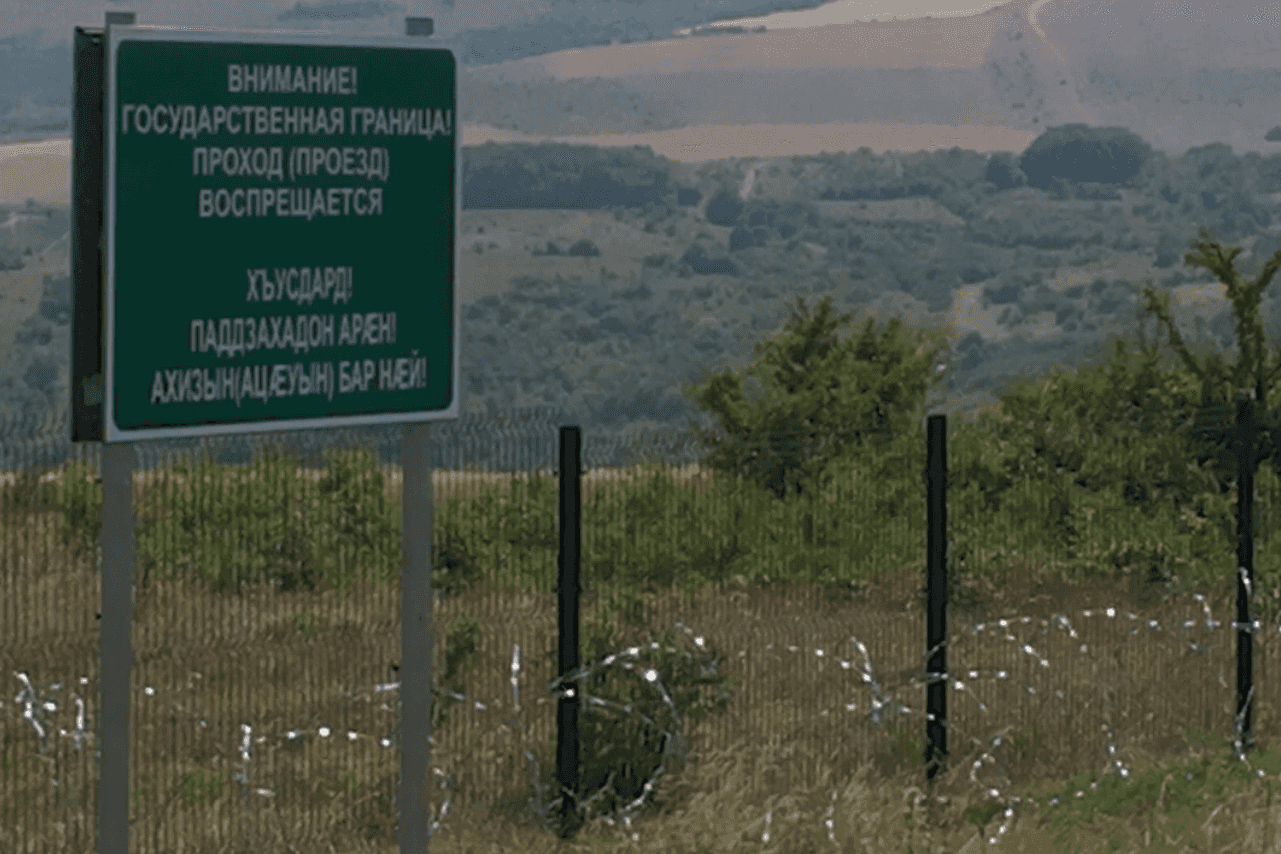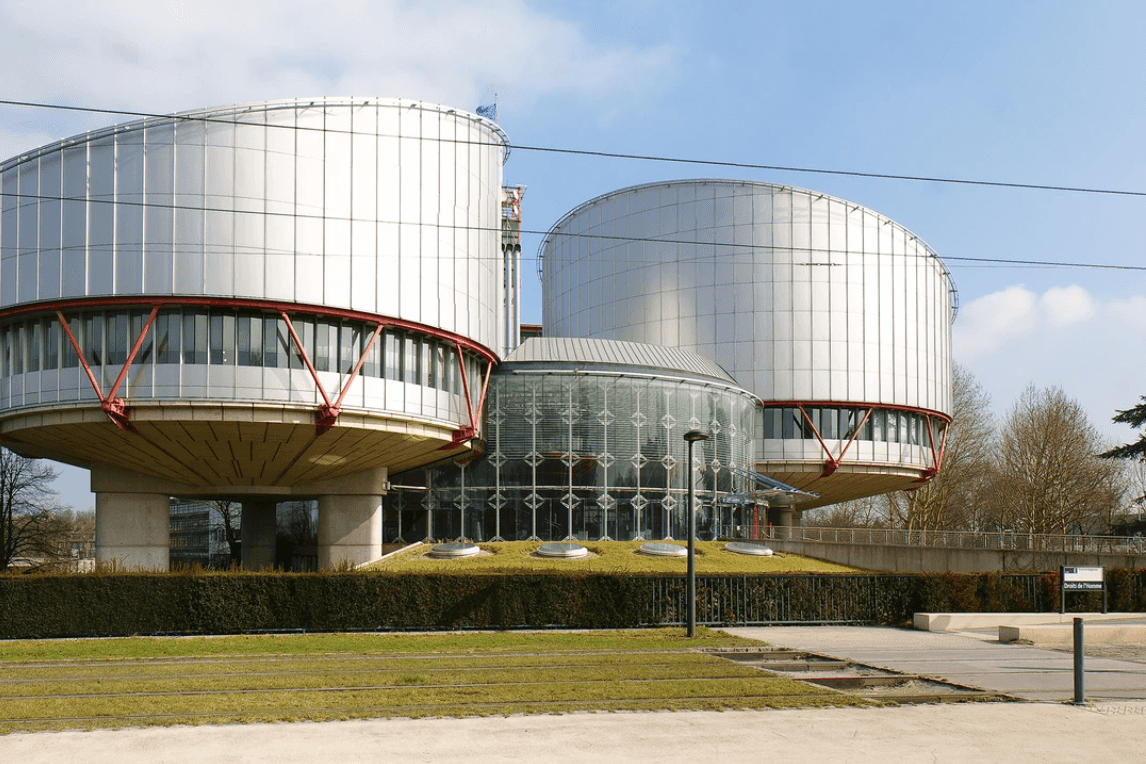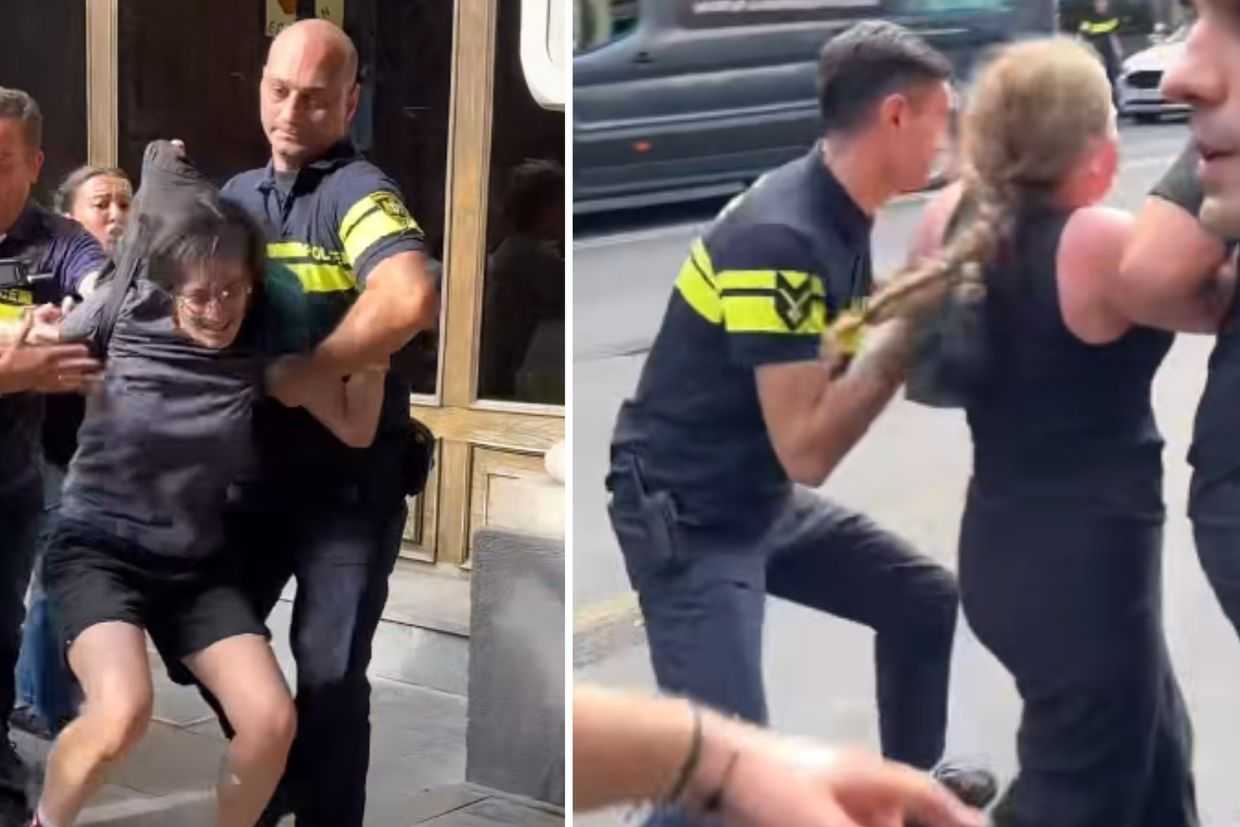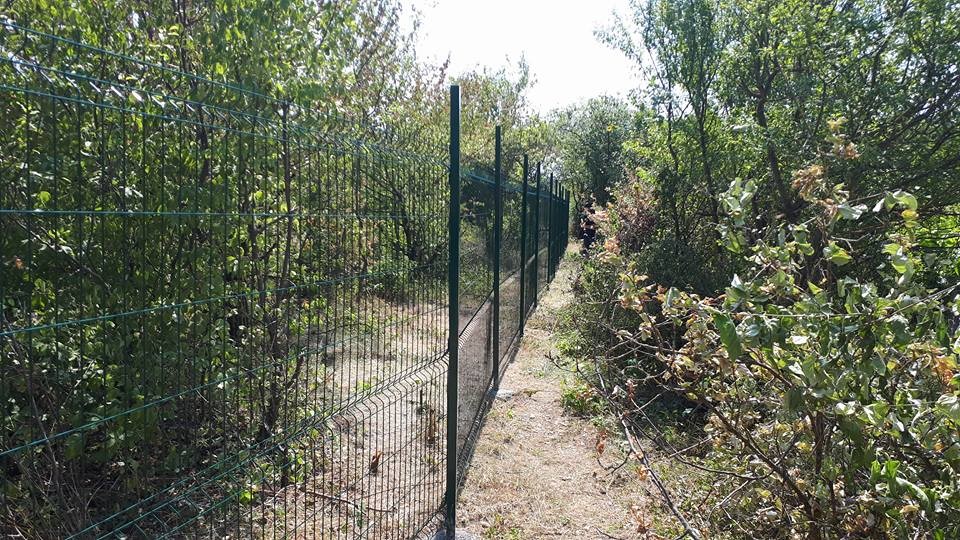
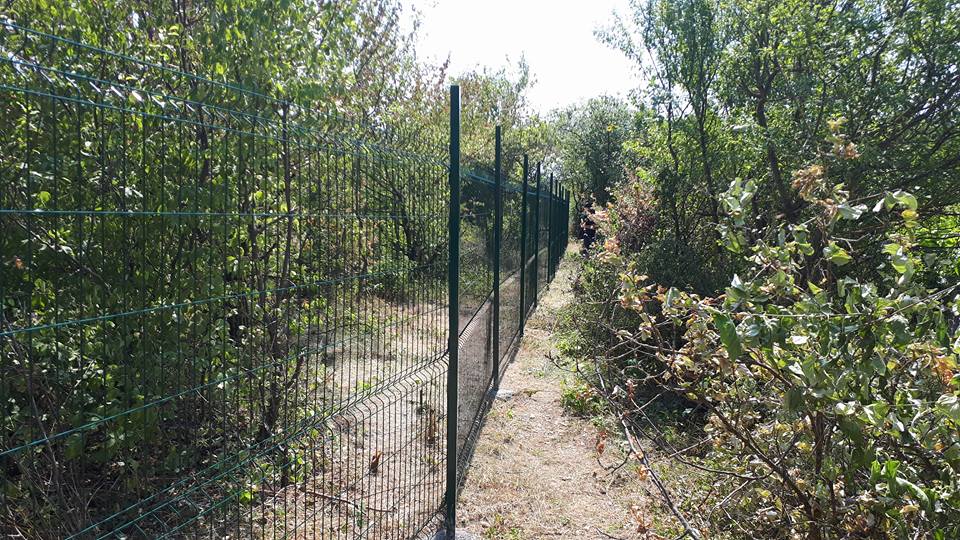
The property and land of two Georgian families have been cut off from Georgian government-controlled territory in the village of Gugutiantkari, near South Ossetia, after Russian border guards set up new fences on 7 August.
On the night of 7 August, government buildings across Georgia lowered their flags to half-mast to commemorate the 11th anniversary of the 2008 August War, which resulted in Georgia losing control over all of South Ossetia.
The new fences cut through the land of two families in Gugutiantkari, cutting off access to two of their houses.
Despite reports in Georgian media that the houses were residential homes, Georgia’s State Security Service told OC Media they were not inhabited and were used only for storage.
The two families are currently emptying the houses, which were burnt during the 2008 war.
One resident of Gugutiantkari told Georgian TV channel Rustavi 2 that local residents did not intend to leave.
‘I was taken prisoner, I’ve been hit by the Russian boot, they tortured me severely, but I did not leave the village. I won’t leave it now either, but what should we tell our children and grandchildren?’
There have been reports that Gugutiantkari and other villages in Gori Municipality are at risk of being left without water if the fences extend across the local water supply system. The SSG told OC Media that for now, the water supply system remained under Georgian Government control.
Ambassadors visit the fences
Russian border guards started erecting poles on 7 August and continued to set up fences on 14 August.
The SSG said the fences were ‘illegal and destructive’ and that they had notified European Union Monitoring Mission.
Georgian Foreign Minister Davit Zalkaliani said ‘the process of setting up artificial barriers has paused, which is by and large the result of the government’s consecutive steps’.
‘We are constantly watching the situation and remain in touch with our international partners. We call on the Russian Federation to stop this illegal policy aimed against Georgia’, said Zalkaliani.
Foreign ambassadors and representatives of several Western diplomatic missions in Georgia visited Gugutiantkari on 16 August.
On 15 August the US Embassy issued a statement calling on Russia to ‘withdraw its forces to pre-conflict positions and allow unfettered access for the delivery of humanitarian assistance, per its obligations under the 2008 ceasefire agreement’.
‘The U.S. Embassy is troubled by reports that Russian-backed de-facto authorities have resumed the installation of fencing at the village of Gugutiantkari, near the Administrative Boundary Line of the Russian-occupied Georgian territory of South Ossetia’, said the US Embassy statement.
‘This has to stop’, British Ambassador Justin Mckenzie Smith tweeted on 15 August.
More #Russia|n razor wire fences are going up today in #Gugutiantkari, #Georgia. They serve no purpose except to cause hardship to families and divide local communities. This has to stop. https://t.co/9xHpeboX3m
— Justin McKenzieSmith (@JustinMcKenzieS) August 15, 2019
Georgia’s State Minister for Reconciliation and Civic Equality, Ketevan Tsikhelashvili, has visited Gugutiantkari twice since work on the new fences began. On Thursday she said that Russia ‘will have to remove the barricades they are setting up right now’.
‘I’m absolutely convinced of this. My faith in this grows when I see this absurdity of limitations and when I meet people who don’t tolerate it and will not tolerate it!’, said Tsikhelashvili.
Anti-occupation activists not allowed at the scene
Members of Georgian anti-occupation group ‘Russia is an Occupier’ were prevented from entering Gugutiantkari by Georgain police on 16 August. The group said they were attempting to reach the fences to support the local population.
One member of the group, Giga Makarashvili, told TV Pirveli that they were told it was not safe and they were therefore forbidden from entering. He added that if it was not safe enough for them to enter the village should be evacuated.
Members of Russia is an Occupier are among the organisers of protests outside the Georgian Parliament that have been ongoing since 20 June and have lasted for 58 days so far.
Mass protests on 20 June followed Russian MP Sergey Gavrilov’s address from the seat of the speaker of the Georgian Parliament, something critics said was inappropriate and offensive given Russia’s role in the conflicts in Abkhazia and South Ossetia.
Later that night, the protest turned violent and police deployed tear gas, rubber bullets, and a water cannon, resulting in at least 240 people being hospitalised, including 80 police officers.
Georgia sues Russia in ECHR
In August 2018, Georgia filed a case against Russia at the European Court of Human Rights (ECHR) for ‘wide-scale practices of harassment, detention, assault, and murder on the Russian-occupied territories of Georgia’.
While Georgia argued that such practices had ‘intensified since the 2008 war’ reaching a ‘critical point’ with the February 2018 killing of Archil Tatunashvili, South Ossetian officials dismissed the move as ‘an absurd propaganda action’.
[Read more about Georgia’s application to the ECHR: Georgia takes Russia to ECHR over ‘rights violations on occupied territories’]
In March 2018, Georgia’s parliament adopted a resolution calling for those committing human rights violations in Abkhazia and South Ossetia to be punished. The resolution ordered the cabinet to create a list of people accused or convicted of ‘murder, kidnapping, torture and inhumane treatment, and serious damage to the health of Georgian citizens on the occupied territories’. It also called for sanctions against those covering up such crimes.
The Russian and South Ossetian authorities slammed Georgia for the list. On 2 July, the authorities in South Ossetia labelled it ‘cynical’ and ‘irresponsible’, dubbing it ‘another indicator’ of Tbilisi’s ‘lack of desire to face its own mistakes and normalise relations’ with Abkhazia and South Ossetia.
The list includes those accused or convicted in absentia for ‘the murder, kidnapping, torture, and inhumane treatment’ of Georgian citizens in Abkhazia and South Ossetia, and for the cover-up of these crimes, since 1991.
For ease of reading, we choose not to use qualifiers such as ‘de facto’, ‘unrecognised’, or ‘partially recognised’ when discussing institutions or political positions within Abkhazia, Nagorno-Karabakh, and South Ossetia. This does not imply a position on their status.



